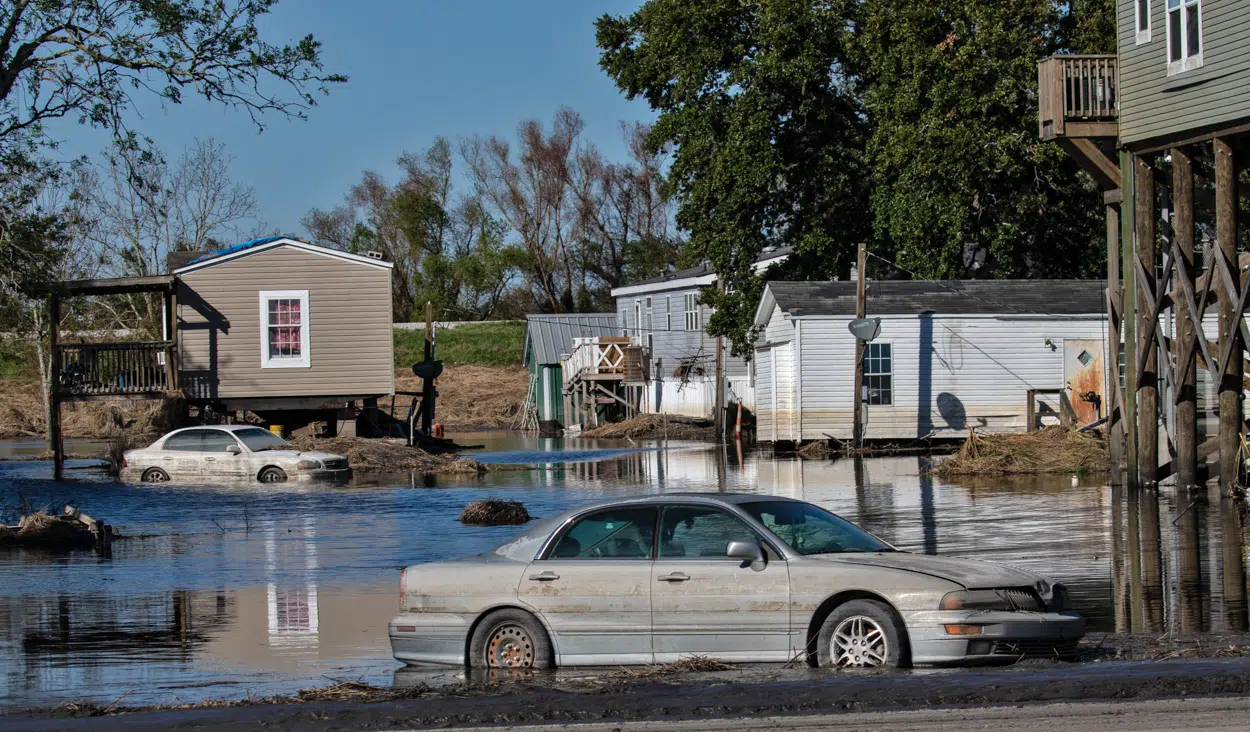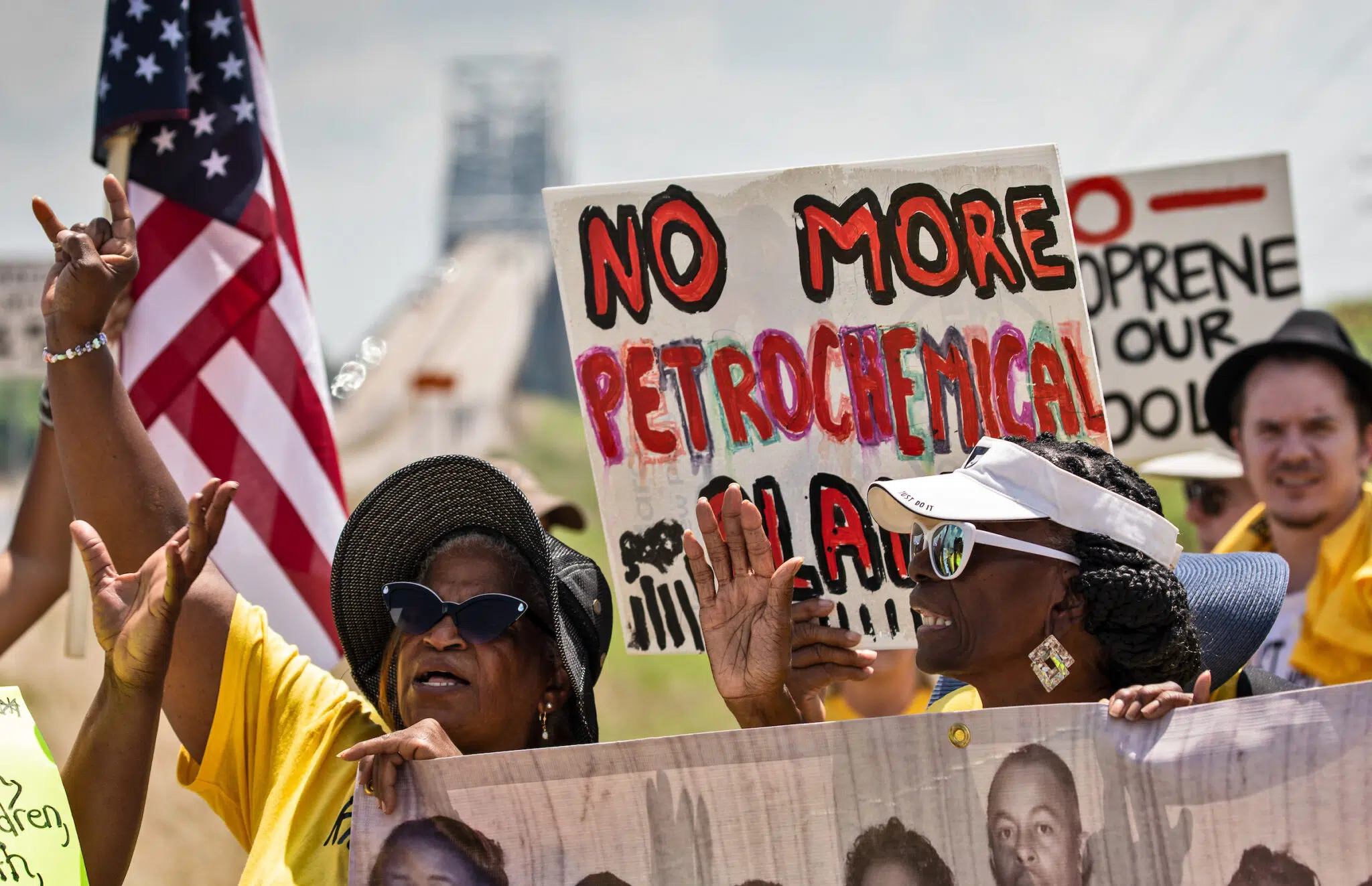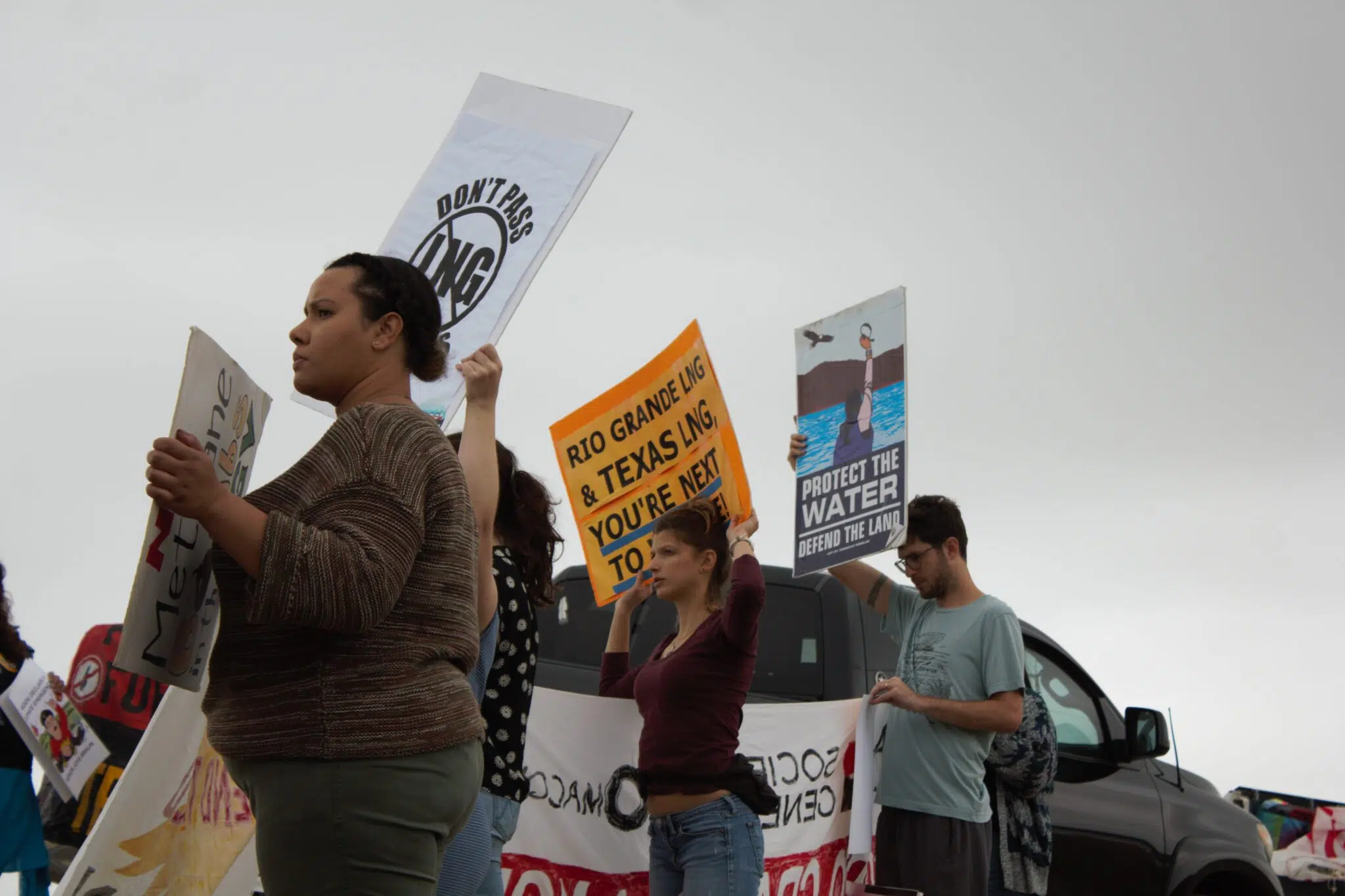
A Special Event From The U.S. Gulf Coast
DeSmog has been reporting for years on the struggle to prevent fossil fuel projects blighting the lives of communities on the U.S. Gulf Coast.
Now, we’re teaming up with the Pocket Project to co-host a very special online event featuring Anne Rolfes, director of the Louisiana Bucket Brigade, a nonprofit fighting to protect the state from the petrochemical industry, and Matthew Green, our global investigations editor.
The event is on Monday, May 22 (11:00-12:30 L.A. / 13:00-14:30 New Orleans / 14:00-15:30 NYC / 19:00-20:30 London / 20:00-21:30 Berlin).
You can register for free here.
We’ll be diving deep into the impact of the fossil fuel industry; the joys and challenges of community organising; and exploring the significance of flashpoints in Louisiana and Texas for the global climate fight. (You can see some of our recent coverage from the Gulf Coast below).
What's more, the event will provide an opportunity to engage in a practice known as Global Social Witnessing, facilitated by the Pocket Project's executive director Kosha Joubert.
We think of Global Social Witnessing as the ultimate antidote to news overload: Instead of getting drowned in the deluge of bad news on our social media feeds, we come together in community to mindfully attend to particular crisis, and engage our mind, heart and gut.
The practice can be very powerful – both for participants directly affected by the situation, and the hundreds of people from all over the world who gather to bear witness.
We very much hope you’ll be able to join us.
To register, click here.
The EPA's Newly Proposed Rule for Chemical Emissions Won't Lesson the Risk for Children in One Louisiana Community for Years to Come
— By Julie Dermansky (10 min. read) —
The Environmental Protection Agency’s Administrator Michael Regan announced a new proposed rule to govern toxic chemical air emissions at an April 6 press conference choreographed to have the Denka Performance Elastomer Plant, a synthetic rubber manufacturing facility in St. John the Baptist Parish, Louisiana, as a backdrop.
The Denka plant is located next to the Mississippi River in the middle of an 85-mile stretch between Baton Rouge and New Orleans lined with chemical plants and refineries that President Joe Biden referred to as “Cancer Alley” when he rolled out his environmental policy, is one of many that will be subjected to new regulations included in the proposed rule, if it is finalized and enacted.
Fossil Fuel Firms Use Permitting Loopholes to Fast-Track LNG Export Projects Near Black Communities
— By Sara Sneath (7 min. read) —
Years before Hurricane Katrina levee failures flooded New Orleans, a Louisiana hurricane expert warned federal officials of the potential for the levees to break. Now, Ivor van Heerden, the former deputy director of Louisiana State University’s Hurricane Center, is concerned about the disastrous and potentially lethal consequences of a hurricane hitting a liquified natural gas (LNG) export terminal under construction south of New Orleans.
“Once again we’ve got politicians and state agencies ignoring the facts, just like they did with Hurricane Katrina,” van Heerden said. “We’re going to have another catastrophe.”
Black Residents of Cancer Alley Sue Local Government for Discrimination in Siting Chemical Facilities
— By Sara Sneath (3 min. read) —
A discrimination lawsuit filed Tuesday in the Eastern District of Louisiana alleges that the St. James Parish Council steered polluting facilities into Black neighborhoods along the Mississippi River. As a result, Black residents there are forced to breathe in more pollution and face a higher risk of related health problems, according to the suit filed by Inclusive Louisiana, Mount Triumph Baptist Church, and RISE St. James.
“We’re being ignored and we have to do whatever we have to do to stop it,” said Myrtle Felton, a lifelong resident of St. James Parish and co-founder of Inclusive Louisiana, a community group focused on environmental injustices.
Carbon Capture Project Is 'Band-Aid' to Greenwash $10 Billion LNG Plant, Locals Say
— By Matthew Green (7 min. read) —
As the Mexican Día de los Muertos, or Day of the Dead, festivities drew to a close, Dina Nuñez called to order a meeting of women grassroots activists in a modest home in the heart of Port Isabel, Texas. Top of her agenda: how to stop a Houston-based oil and gas company from building a $10 billion project to export liquefied natural gas on a nearby stretch of coast.
For Nuñez and her friends, the fight against the scheme — known as Rio Grande LNG — is about protecting their community from air pollution; preserving shrimping and tourism; and defending habitats for pelicans, endangered ocelots, and aplomado falcons at the project site on unspoiled wetlands between Port Isabel and the larger city of Brownsville.





